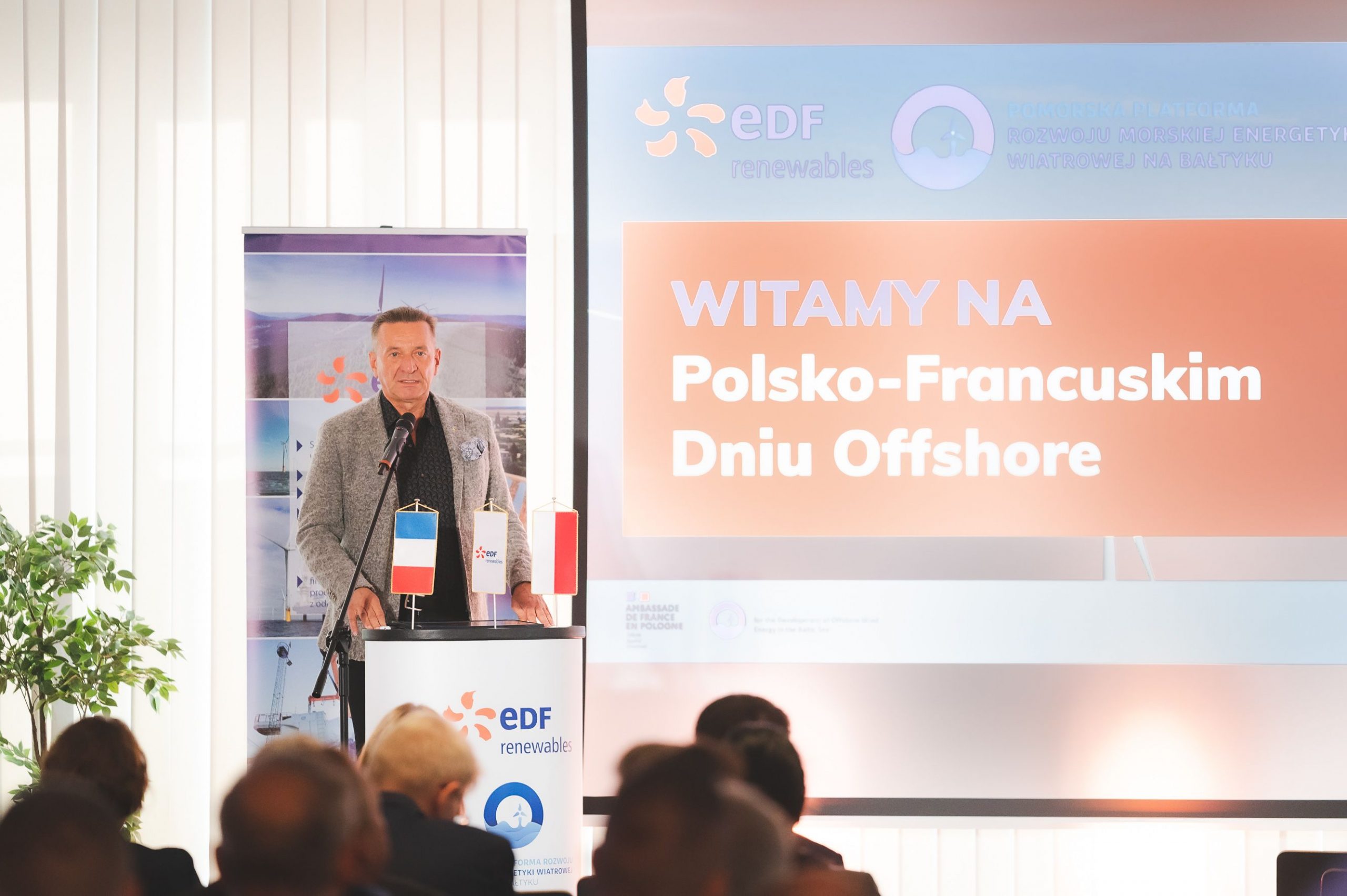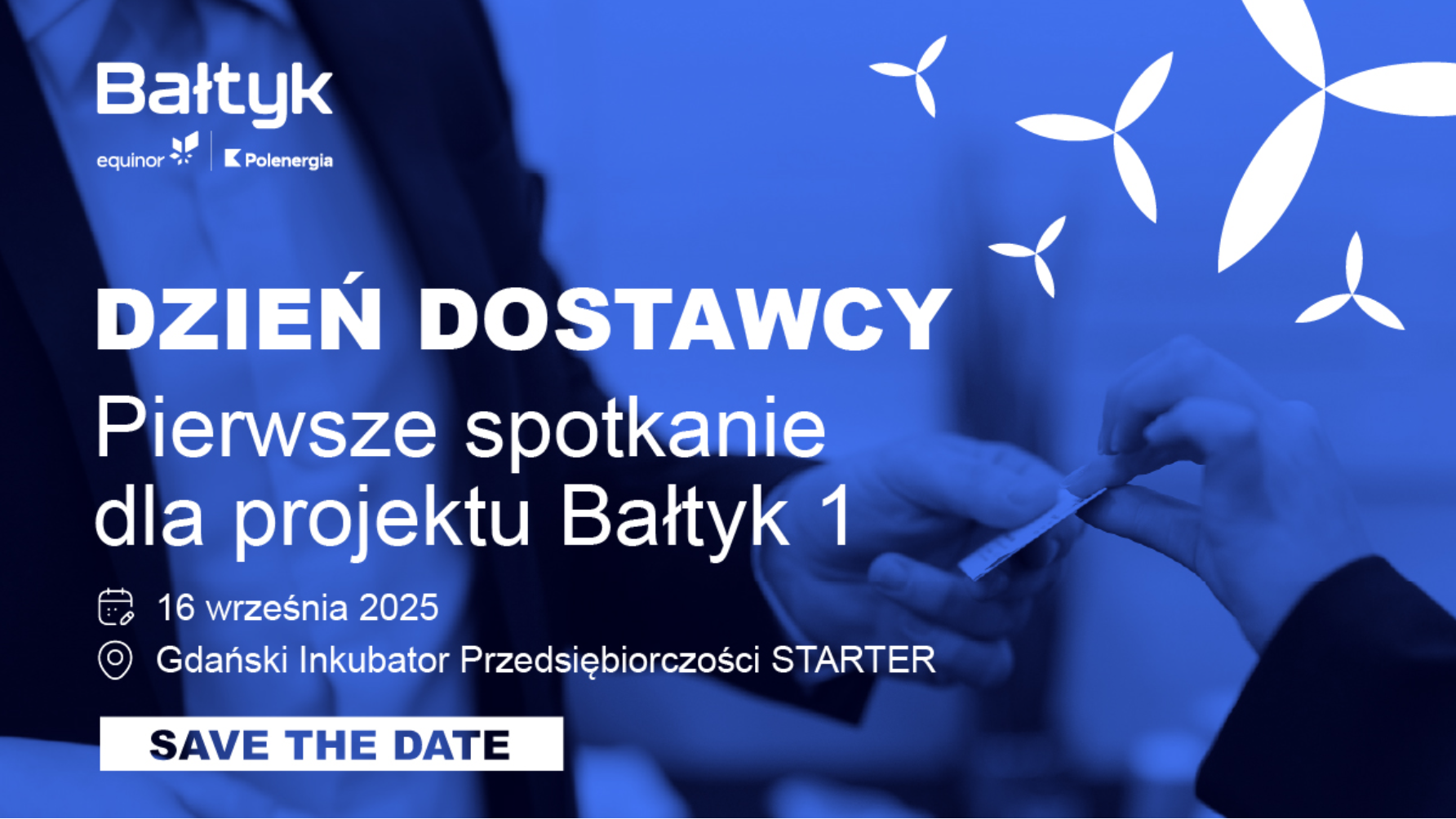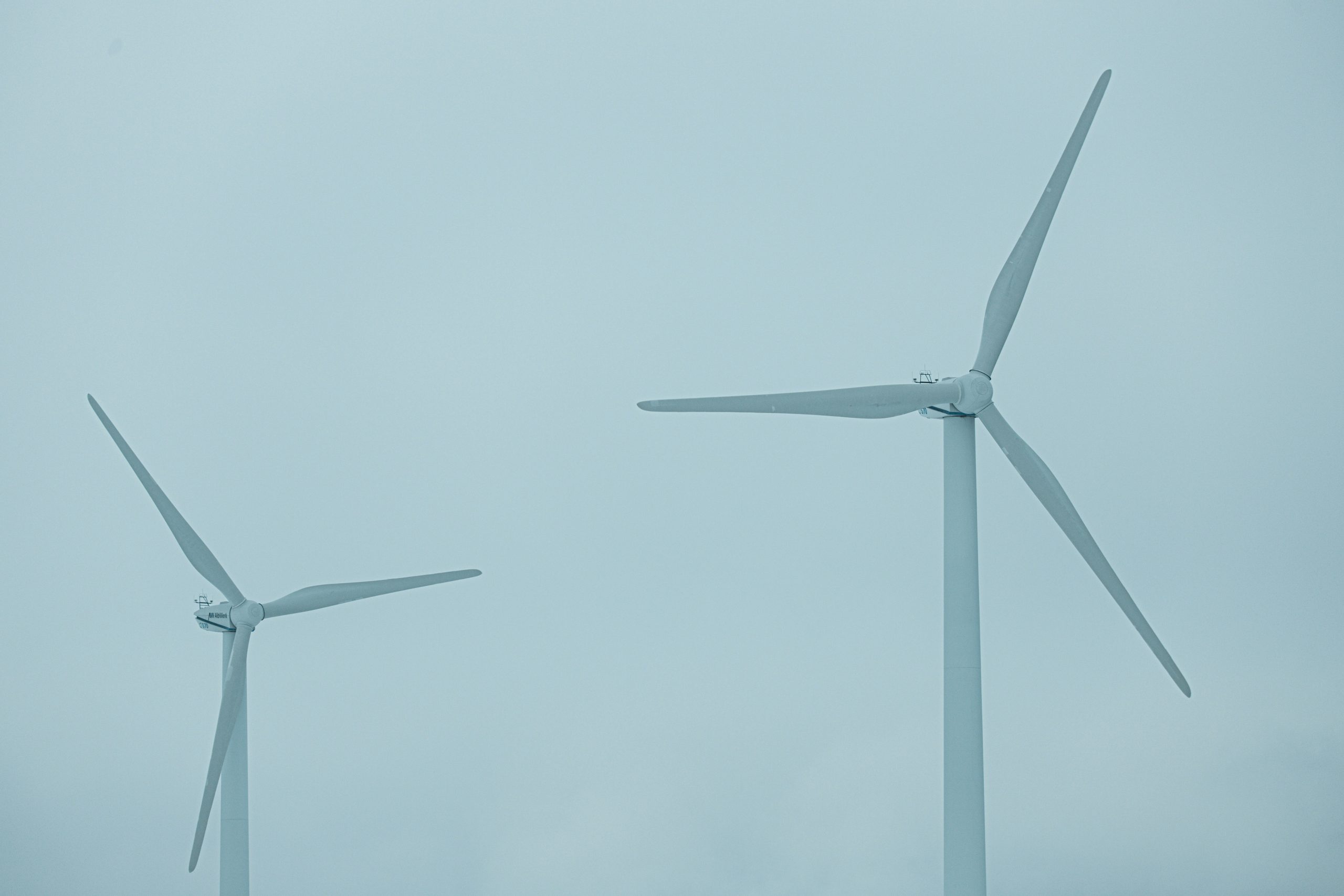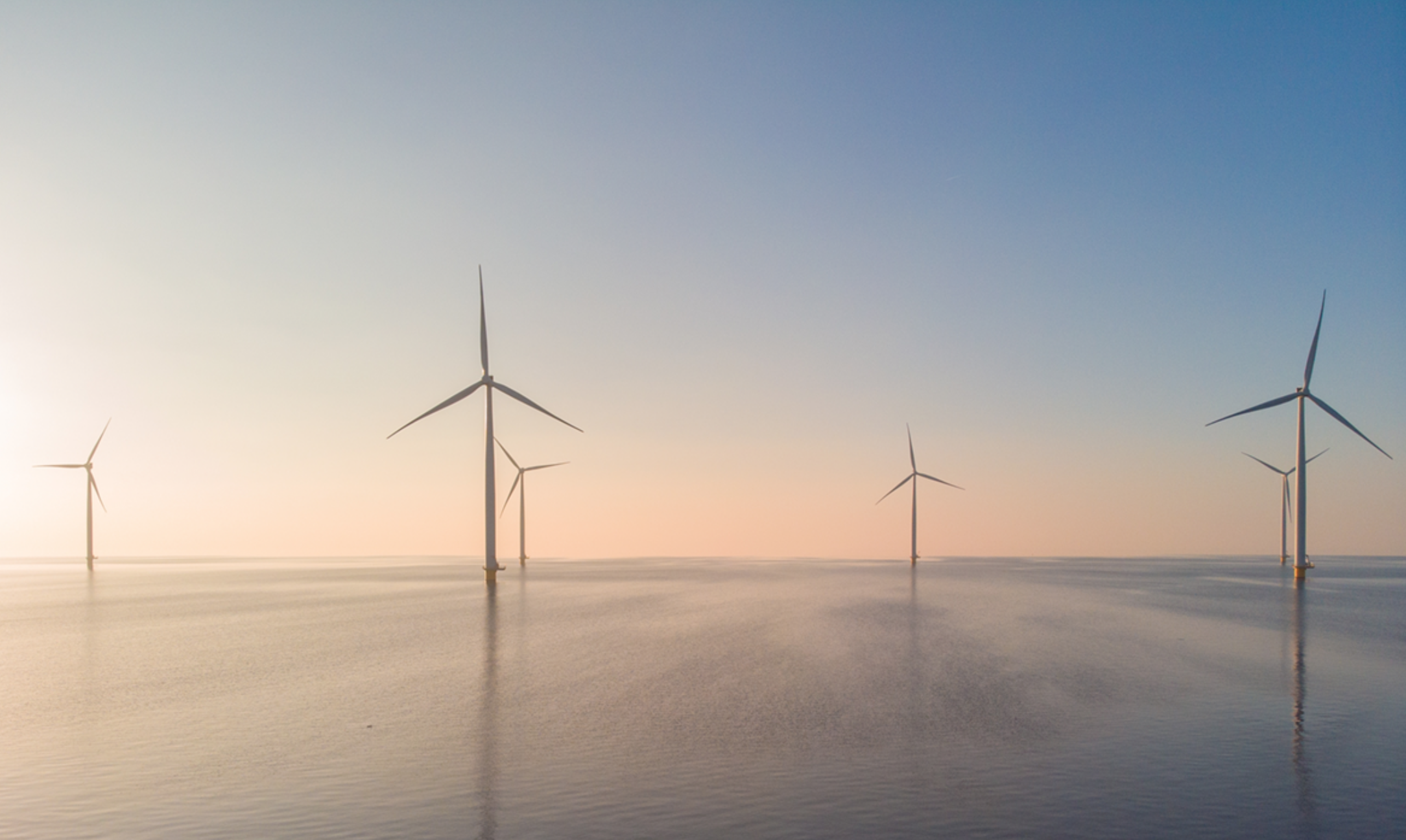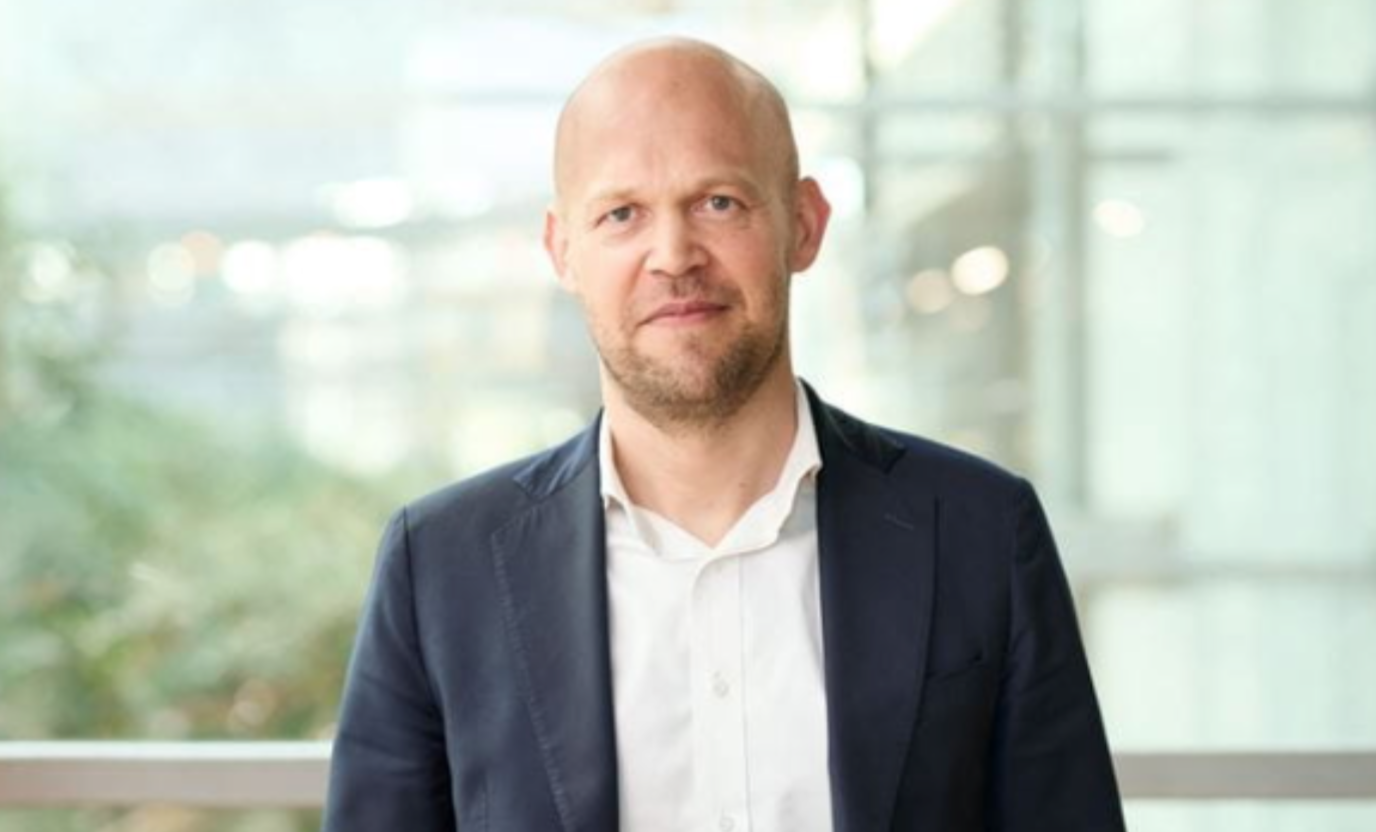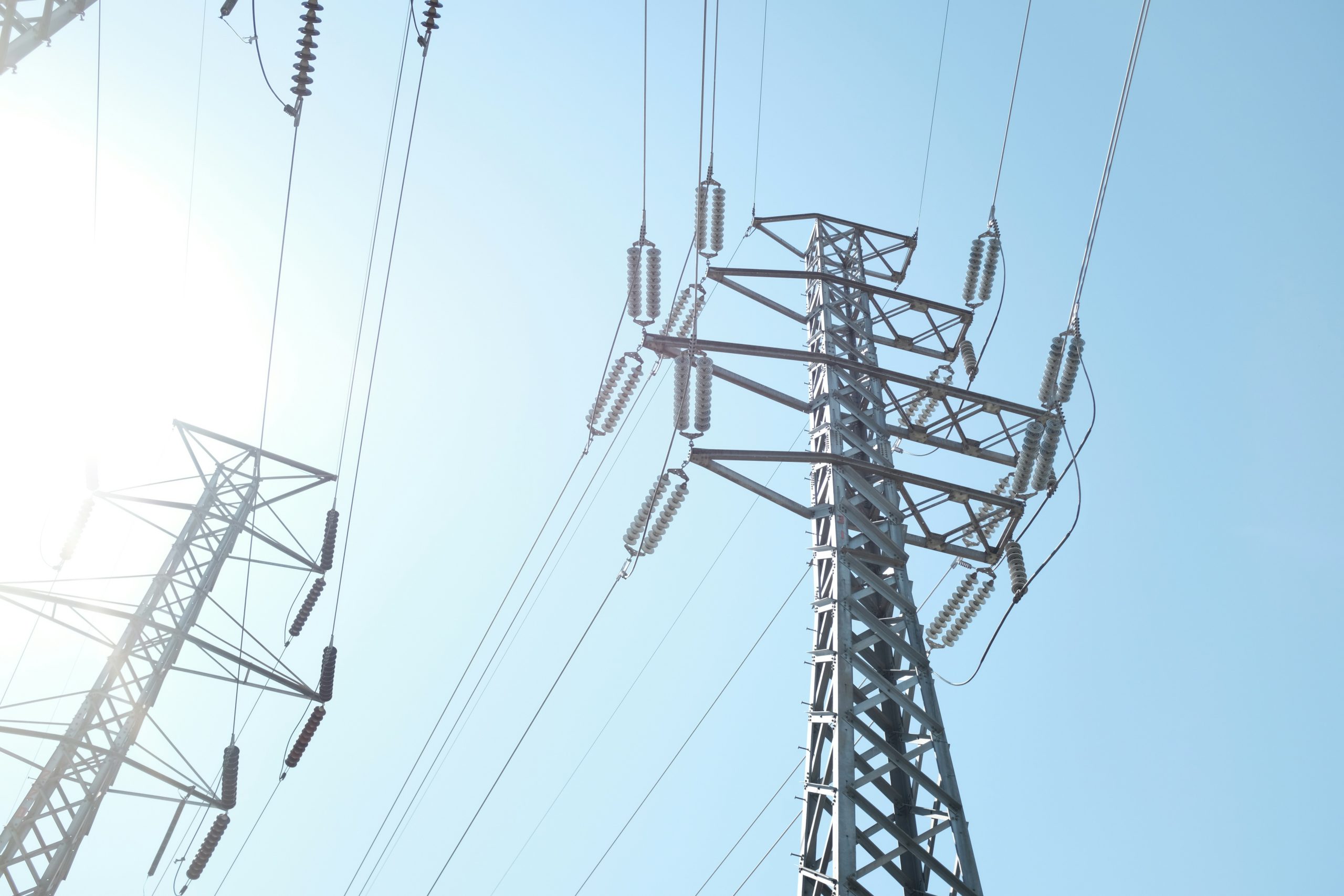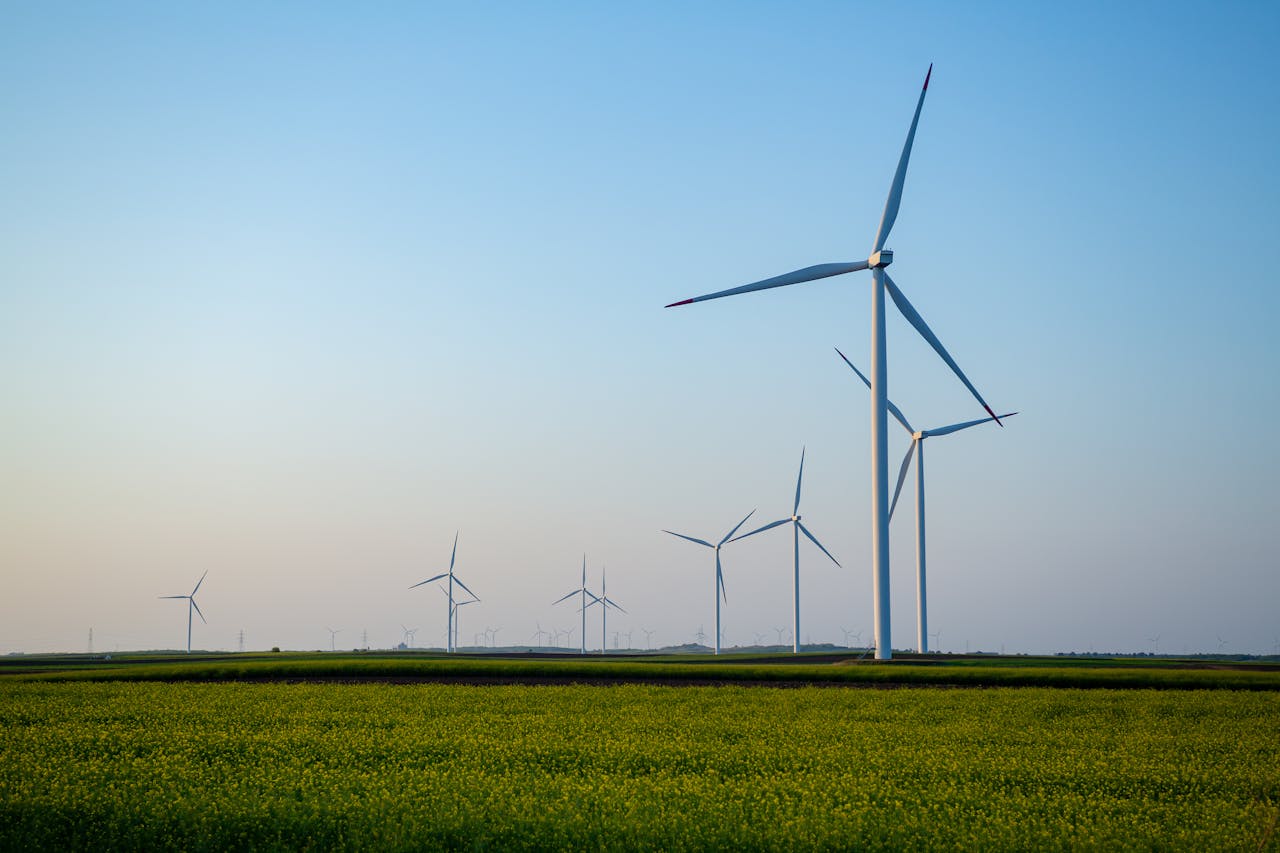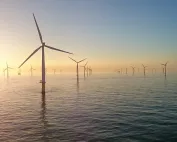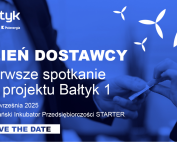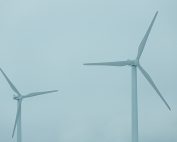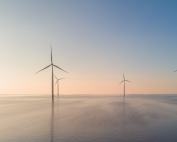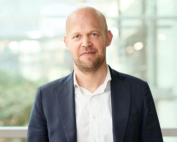On the 13th of September 2022 a unique event: the “Polish-French Offshore Day” was held at the Gdańsk Entrepreneurship Incubator STARTER. It combined a meeting of the Pomeranian Platform for Offshore Wind Energy Development in the Baltic Sea and a segment focused on presenting the French experience gained during 10 years of the formation of the offshore wind energy sector in France, in particular the first completed French offshore wind farm in Saint-Nazaire (480 MW).
French experience and Polish local content: we are all constantly learning and looking for synergies.
The meeting was hosted by EDF Renewables, an international leader in renewable energies, with a portfolio of 13.5 GW in completed, underway or in the pipeline worldwide offshore projects. In France alone, EDF Renewables’ offshore projects are totaling up to more than 2 GW and, from scratch, creating a whole new sector of the economy around offshore wind energy.
In Poland, EDF Renewables has applied for location permits for 10 of the 11 available areas for the construction of offshore wind farms under the so-called second phase of the offshore program. Therefore, this is a very good time to get acquainted with the experience of the French offshore development program together with representatives of Polish business, local authorities, units of research and education sector, as well as to think about the possibilities of using them in the construction of local offshore wind energy. After all, as the example of offshore investment in France shows, more than 7,000 jobs have already been created around the construction of wind farms, including 1,200 jobs for residents of the Saint Nazaire region, 3 turbine and blade factories, and there are already 1,750 companies involved in various offshore supply chains in France.
The French company invited their Saint Nazaire project partners to Gdańsk to talk about the experience gained during the creation of the largest offshore wind farm in France, with a capacity of 480 MW, whose construction was completed last week. Cooperation in the organization of the meeting was provided by, among others, the Pomeranian Platform for the Development of Offshore Wind Energy established by Pomeranian Voivodeship Marshal’s Office, Gdańsk Entrepreneurship Incubator STARTER, where the event was held, and the Polish Wind Energy Association. The French Embassy in Poland was the honorary patron of the event.
The first part of the meeting was opened by Leszek Bonna, Deputy Marshal of the Pomeranian Voivodeship, Magdalena Wójtowicz, Vice-President of the Managing Board at Gdańsk Entrepreneurship Incubator STARTER, and PhD Eng. Karolina Lipińska, coordinator of the Pomeranian Offshore Platform. It is entities such as the Incubator STARTER or the Pomeranian Offshore Platform that have a particularly important role in integrating the environment and facilitating the exchange of knowledge and best practices. As PhD Lipińska mentioned: “September 20 marks two years since we established the Pomeranian Platform for the Development of Offshore Wind Energy in the Baltic Sea and it has grown incredibly over these two years. We have more than 100 signatories today, it used to be 26”.
Educational and competence-enhancing projects for employees in the offshore industry were the subject of the following speeches: by Łukasz Kneba, Owner of CO-MADE sp. z o.o., who talked about the EDU Offshore Wind initiative aimed at students and graduates from the Pomeranian Voivodeship who aspire to work in the offshore industry, and by Krzysztof Tomaszewski, Board Member of CEE ENERGY, who emphasized the importance of cooperation with business on educational projects and talked about the implementation of educational career days.
Professor Sambor Guze, of Gdynia Maritime University, presented a summary of the work to date of the “Competencies” Group of the Offshore Wind Energy Coordinating Council under the Ministry of Climate and Environment, which is expected to lead to the creation of a Sectoral Qualification Framework for the offshore wind energy industry. Sebastian Zimnol and Professor Paweł Pawłowski presented innovative solutions for ensuring the cyber security of the offshore wind industry, which is likely to be part of the state’s critical infrastructure.
Sławomir Przygoda, of the Polish Investment and Trade Agency, presented the framework of the Agency’s activities, especially in the context of supporting investments and projects in renewable energy sources. The morning part of the meeting closed with a presentation by Paweł Przybylski, Managing Director of Siemens Gamesa Renewable Energy, who talked about the company’s plans for offshore projects in Poland.
Strong partnerships and local cooperation are the key
Speeches by representatives of business, science and public entities showcased the potential of offshore wind energy in Poland. It was a great introduction to the second part of the meeting – the Polish-French Offshore Day. At the beginning, Alicja Chilińska-Zawadzka, CEO of EDF Renewables in Poland, introduced the previous history of the company, which has been involved in the Polish RES sector for over a dozen years. Chilińska-Zawadzka emphasized the benefits of building strong local partnerships and drawing on the experience of international partners when implementing projects of such scale as offshore wind farms.
The importance of building local partnerships and the participation of Polish entities in supply chains, based on the company’s own experience, was also emphasized by Piotr Świecki, Director of Energy & Industrial Construction at Budimex S.A. The appearance of a Budimex representative was no coincidence. In early August, EDF Renewables and Budimex signed an agreement on a strategic partnership for the implementation of investments in offshore wind farms as part of the second phase of offshore development in Poland. Partnerships of this type with entities of different scales and lines of business are key to the long-term creation of the Polish offshore sector (it is worth mentioning that EDF Renewables has previously reached agreements with the FAMUR Group from the engineering and machinery industry, and with Mikronika, a company from the industrial IT industry).
Parallel to the presentations, participants of the Polish-French Offshore Day interested in participating in offshore supply chains and future cooperation with the French developer had the opportunity to meet directly with representatives of EDF Renewables’ purchasing and procurement department. During the B2B meetings, Polish companies were able to learn about the opportunities to participate in procurement proceedings organized by the company and learn about the detailed requirements in this regard. More than 20 entities from many industries took advantage of this opportunity throughout the day.
The event was aimed at introducing the French experience of developing local content in the offshore sector, hence the key points of the event were speeches by French guests, who presented specific experiences from the creation of the Saint-Nazaire wind farm project and the making of an industrial and service environment in the region.
A French perspective on developing local content was given by Laurent Smagghe, Offshore Industry Relations Manager in France from EDF Renewables. He shared lessons learned since 2011, often difficult and surprising, while emphasizing the role of local content and its impact on the region’s economic development. Laurent Smagghe pointed out the need for close cooperation with local players, as well as analogies and differences between the French and Polish offshore markets. Smagghe also highlighted the advantage that Poland can gain in the so-called first phase thanks to the progress in the industry that has taken place over the last decade and lessons from investors and developers in other markets.
During the event, very different perspectives on the possibilities of using the experience of the Saint-Nazaire project and the conditions for locating value chains in Poland were presented – Christophe Moiret of Chantiers de l’Atlantique, presented the specifics of the involvement and point of view of the shipbuilding industry, while perspectives from the side of the global manufacturer of offshore wind turbines were shown by representatives of GE Renewable Energy: Matteo Labadini, Paola Jugele and Brice Coquelet. Olivier Tretout, General Manager of the Nantes/Saint-Nazaire Port, presented the role of the installation port infrastructure, the process and scope of the necessary infrastructure preparations in this area, enabling offshore investments.
A very relevant and interesting experience on local cooperation as a key to the success of offshore development (especially in the context of building a regional initiative like the Pomeranian Offshore Platform) was presented by Lucas Bryk, from Neopolia – a sector cluster created more than 20 years ago by local entrepreneurs. Today, Neopolia brings together 240 companies and one of its areas of activity is offshore wind energy. Synergies made possible by cooperation in the cluster allow Neopolia’s affiliates to implement complex infrastructure projects within one comprehensive value chain. This, in turn, makes it possible to execute an offshore contract using entities hailing overwhelmingly from the region. This is precisely the crux of building local content in each country.
In turn, Franck Schoefs, Professor at the University of Nantes and specialist in marine and offshore research, showed, using the example of the project in Saint-Nazaire, the important role of the scientific community, as well as of scientific and research units in building a base for a properly functioning, innovative offshore sector. As he pointed out, seeing the potential of Polish entities, equally positive results as in France can be achieved in offshore industry centers in Poland.
The event showed that Polish companies are very interested in cooperation with large investors in the offshore sector. Therefore, a highlight of the program was the speech by Yasmine Yurdusef, Head of the Offshore Wind Energy Procurement Department, who presented the basic principles and procedures for participation in EDF Renewables’ offshore procurement and the requirements for entities planning their participation in such a procedure.
In addition to the aforementioned dedicated elements, the event itself was also an excellent opportunity for behind-the-scenes discussions, networking and seeking synergies among local partners. More than 120 on-site participants had the opportunity for a full day of discussions on potential business cooperation with representatives of global offshore industry leaders.
 [Yasmine Yurdusef, Head of the Offshore Wind Energy Procurement Department, EDF Renewables, photo: Gdańska Fundacja Przedsiębiorczości]
[Yasmine Yurdusef, Head of the Offshore Wind Energy Procurement Department, EDF Renewables, photo: Gdańska Fundacja Przedsiębiorczości]
Sector development fast as a marathon, partnerships like a relay
The Polish-French Offshore Day concluded with a panel discussion moderated by Paweł Wróbel, Managing Director of BalticWind.EU. The leading topic of the discussion was the approach of private and public Polish entities to the development of local content and how to take advantage of the French experience, which can be a key success factor in the case of Poland. Alicja Chilińska-Zawadzka compared the efforts in the Polish offshore wind industry to “a marathon, which unfortunately has to be run in a sprint, but which is also a relay race”. The challenges of large-scale offshore investments require long-term, very intensive involvement of players in the supply chain in the preparation and implementation of the project, as well as strong cooperation between all involved.
 [The panel included, from left: Matteo Labadini – Offshore Sales, GE Renewable Energy, Laurent Smagghe, Marie Foucault, from EDF Renewables, PhD Karolina Lipińska, Christophe Moiret – Business Developer, Chantiers de l’Atlantique, Alicja Chilińska-Zawadzka, CEO of EDF Renewables Poland, Piotr Czopek – Director for Regulatory Affairs, Polish Wind Energy Association (PWEA), and Piotr Świecki – Director of Energy and Industrial Construction, Budimex S.A, moderated by Paweł Wróbel, Managing Director of BalticWind.EU, photo: Gdańska Fundacja Przedsiębiorczości]
[The panel included, from left: Matteo Labadini – Offshore Sales, GE Renewable Energy, Laurent Smagghe, Marie Foucault, from EDF Renewables, PhD Karolina Lipińska, Christophe Moiret – Business Developer, Chantiers de l’Atlantique, Alicja Chilińska-Zawadzka, CEO of EDF Renewables Poland, Piotr Czopek – Director for Regulatory Affairs, Polish Wind Energy Association (PWEA), and Piotr Świecki – Director of Energy and Industrial Construction, Budimex S.A, moderated by Paweł Wróbel, Managing Director of BalticWind.EU, photo: Gdańska Fundacja Przedsiębiorczości]
Also participating in the discussion was Piotr Czopek, Director for Regulatory Affairs from the Polish Wind Energy Association, who presented the industry’s perspective and expectations of foreign investors in the context of the PWEA-backed offshore sector agreement.As he pointed out: “The most important thing is for the entities in the local content to be as numerous as possible, (…) because the more companies, the greater the competition, the better and more available products and services.”
He also touched on challenges that supply chain players may face in the future. According to PWEA, a report compiled by the organization, the bottleneck could be, for example, the low global availability of offshore installation vessels. That is why, as Director Czopek stresses, it is so important to emphasize the creation of local content given the logistical challenges that may arise in the near future. It is important, therefore, to locate supply chains and services in the country of investment execution in order to minimize logistical obstacles, which directly affects the security of execution of the entire investment.
 [Laurent Smagghe, EDF Renewables: “What is key is to have a regional ecosystem that is promoting the industry through very active local structures.”, photo: Gdańska Fundacja Przedsiębiorczości]
[Laurent Smagghe, EDF Renewables: “What is key is to have a regional ecosystem that is promoting the industry through very active local structures.”, photo: Gdańska Fundacja Przedsiębiorczości]
The panel was summed up by Marie Foucault, Director of Offshore Projects in Europe at EDF Renewables, who is responsible, among other things, for preparing the implementation of the project as part of Phase II of the offshore development in Poland. She emphasized the similarity of the challenges and current situation in Poland to that of the early days of offshore projects in France, and declared EDF Renewables’ openness to sharing tips and experiences. For Marie Foucault, the development of a local supply chain is the key to success, which ensures cost-effective and timely implementation of projects. The director supported her thesis by citing a key phase of the project in Saint-Nazaire, which temporarily coincided with the outbreak of the Covid-19 pandemic.
“This pandemic could have turned out to be a total disaster for everyone, derailing the schedule of the entire construction phases of our first offshore wind farm in France. And that didn’t happen, because these projects were constructed under a local content approach.” – mentions Marie Foucault – “The success of offshore wind power is to maximize local participation so as to positively embark local stakeholders into a common project. This approach at EDF Renewables – of working closely with local companies and building national value chains – is part of our DNA, simply because it works and guarantees projects success even in crisis situations.”
 photo: Gdańska Fundacja Przedsiębiorczości
photo: Gdańska Fundacja Przedsiębiorczości
